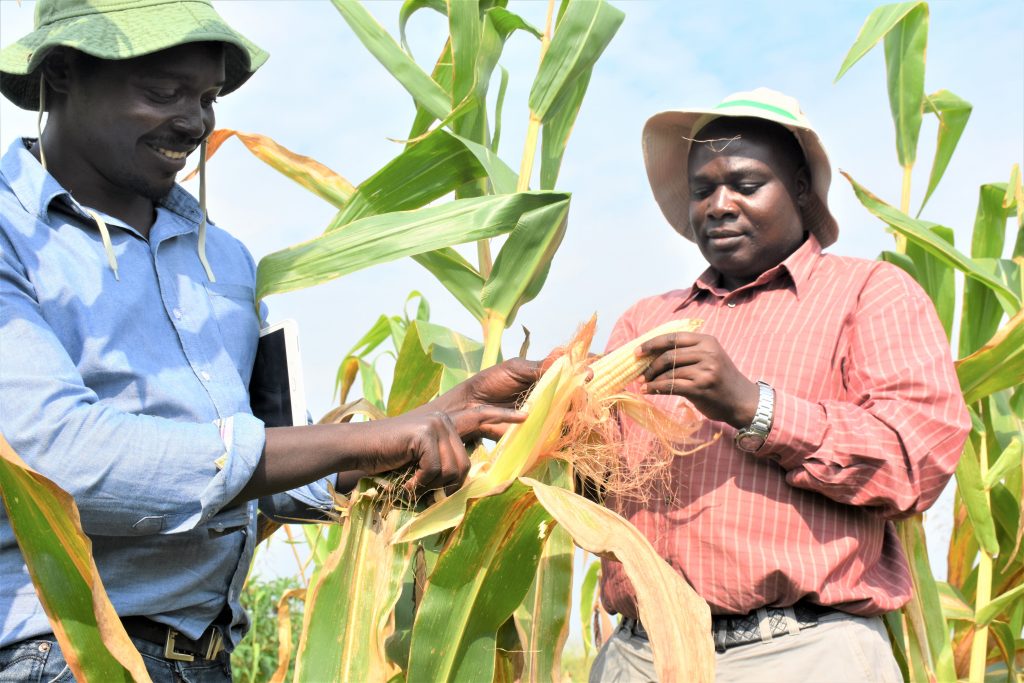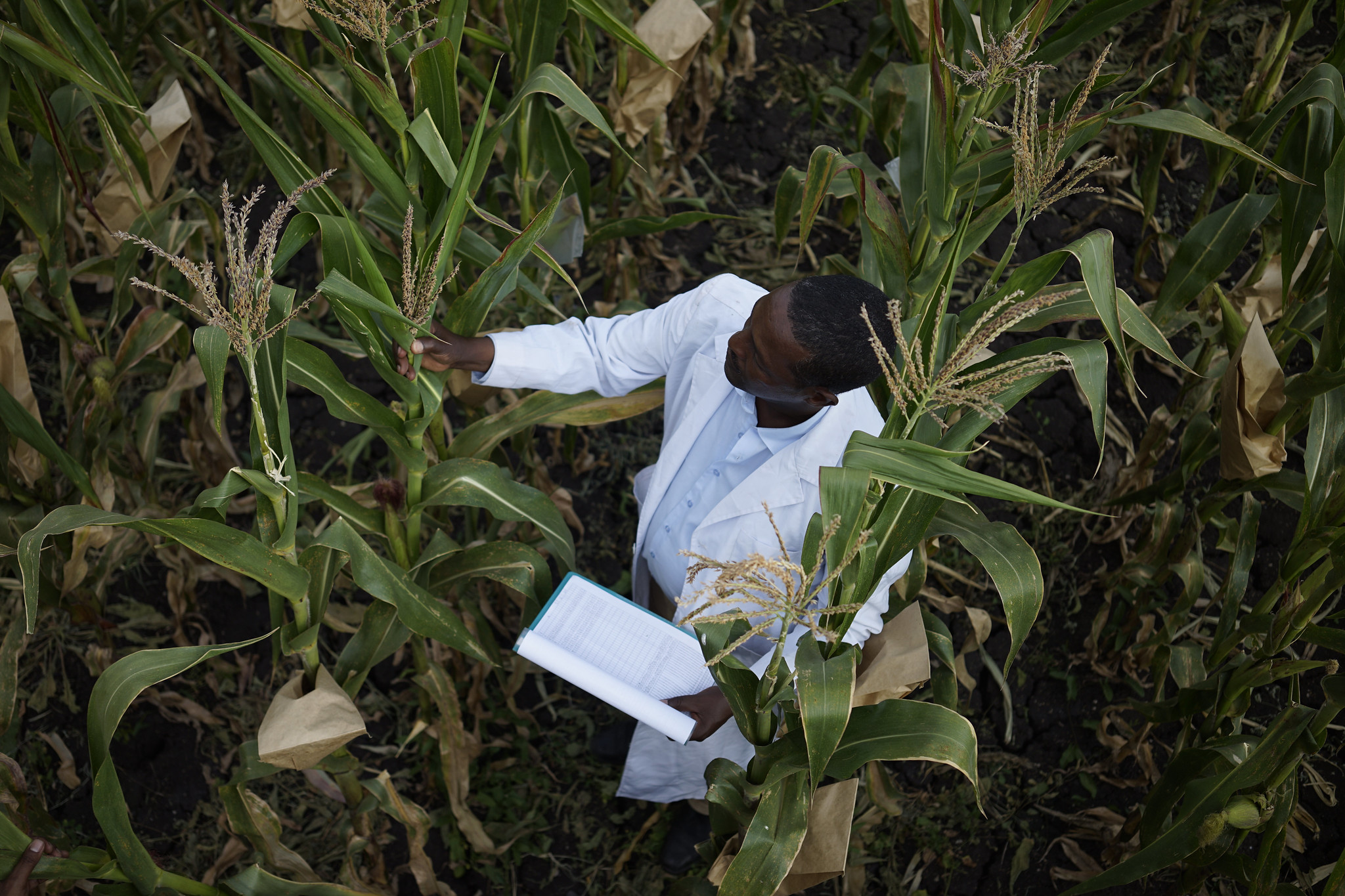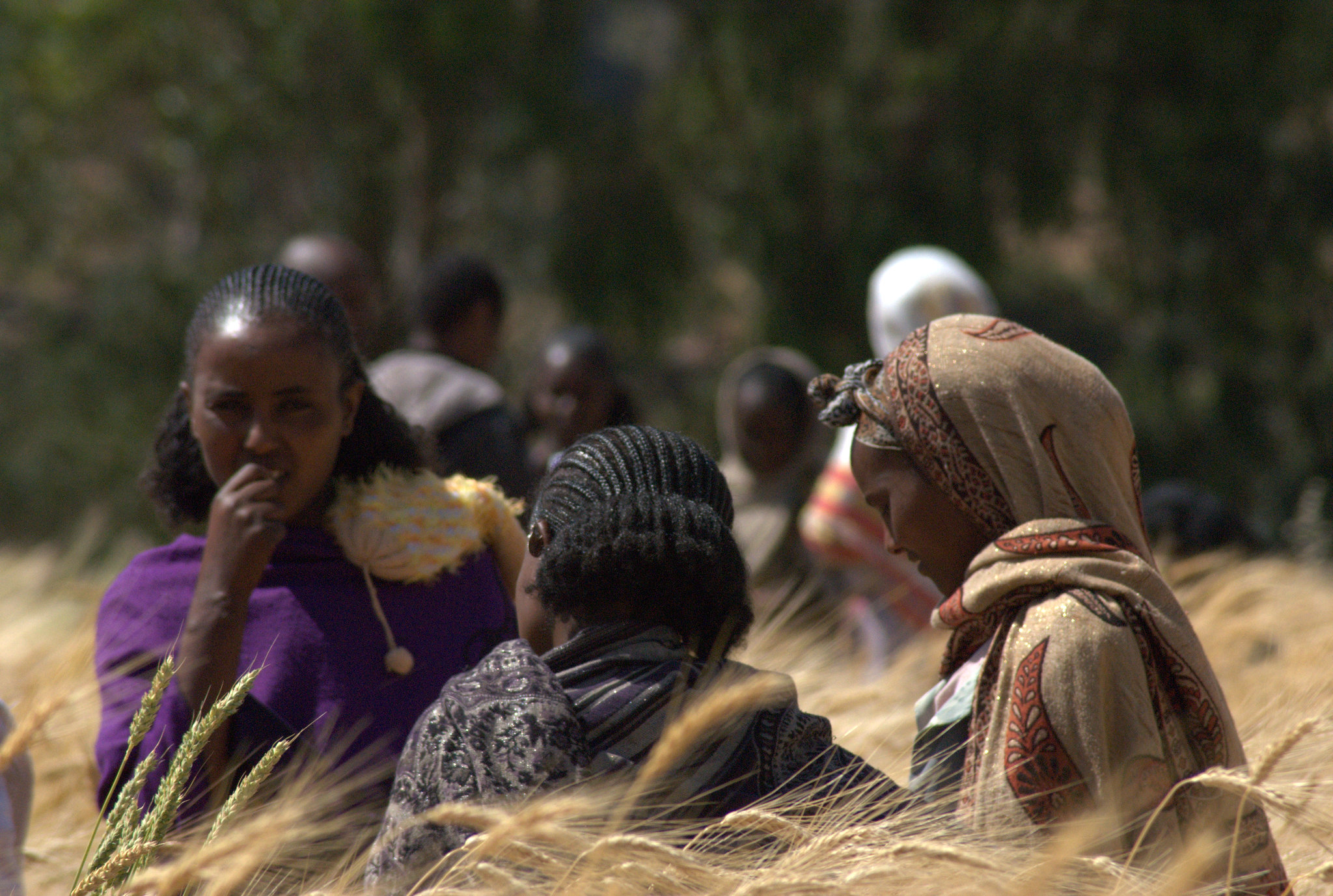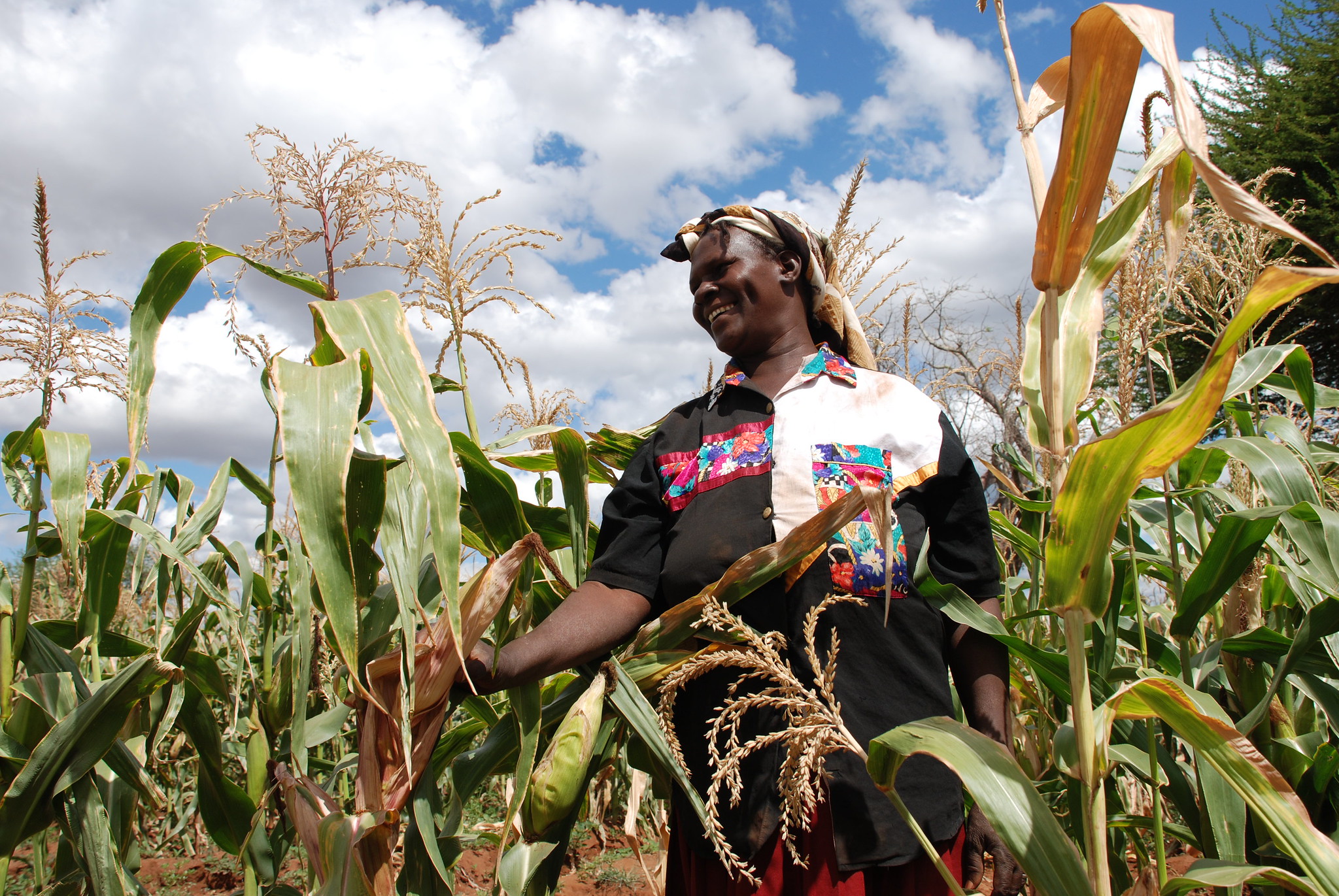The active involvement of partners in the co-design of project and capacity building activities is key to the success of the Accelerating Genetic Gains in Maize and Wheat for Improved Livelihoods (AGG) project, led by the International Maize and Wheat Improvement Center (CIMMYT). To that end, the AGG Regional Collaborative Breeding and Testing Networks launched with virtual meetings on September 14 and 15 for southern African partners, and October 28 and November 2 for eastern African partners.
In addition, the AGG team collaborated with researchers from the Excellence in Breeding (EiB) Platform on a number of capacity development webinars in October and November, on topics including Continuous Improvement for breeding processes, programs and products, enhancing and measuring genetic gain in crop breeding, and a three-webinar series on statistical analysis for plant breeders with CIMMYT’s Biometrics and Statistics Unit.
These training events and regional meetings provided opportunities for well over 100 breeders from CIMMYT, national agricultural research systems (NARS) and seed companies to refresh their capacities to improve genetic gains, and to collectively review and discuss upcoming project activities, current issues of interest, and broader project objectives within their current regional context.
Several themes of importance to partners emerged during the network virtual meetings, for attention in future AGG activities and capacity development work.
Gender inclusion and the impact of COVID-19
Ugandan partners, including Godfrey Asea, director of the National Crops Resources Research Institute at Uganda’s National Agricultural Research Organization, and Josephine Okot, founder and managing director of Victoria Seeds, applauded the project’s emphasis on inclusion of women’s knowledge and preferences in breeding programs.
“We notice that this time there is a lot of focus on gender-inclusiveness,” remarked Asea. “I can tell you there is need for enhanced capacity building for both the private sector and research in proper gender inclusion.”
They also noted the importance of building local capacity, not just for food security but also for other value chain items like raw materials. “COVID-19 has demonstrated to all policy-makers that we cannot depend on the global supply chains,” said Okot. “How can we leverage this project if, for instance, some private sector actors want to [know] the appropriate protein-content maize for, say, animal feed?”

Demand for knowledge
NARS members in Tanzania requested increased support on how to measure or assess genetic gains, especially at the national level, to allow them to establish a baseline upon which genetic gains would be pegged for the project lifecycle.
With statistics an essential element to plant breeding — from analyzing yield trials to ranking varieties — the webinar series in Statistical Analysis for Plant Breeders was a first step towards meeting these capacity development needs.
“The idea of this webinar series was to share insights on how we can improve the breeding plans using statistical methods in an effective way,” said Juan Burgueño, the head of CIMMYT’s Biometrics and Statistics Unit. “The training offered both theory and hands-on experience using open-access software.”
Reaching farmers
Looking beyond breeding, meeting participants also discussed how to improve access and adoption of improved varieties among farmers.
“For a large country such as Tanzania, it is at times very hard to reach the farmers,” said Zabron Mbwaga, managing director of the Tanzania-based Beula Seed Company and Consultancy Limited. “We may have a lot of seed in the store, but how to get the farmers to adopt the newer varieties is quite difficult. This is more so when farmers tend to stick to varieties which they know well and are always reluctant to adopt the new varieties,” he explained.
“We need to put in a lot of effort to set up demonstration farms and enhance other awareness-raising activities such as radio programs so that farmers can know about the new varieties.”
This interest in working with smallholder farmers along the entire value chain was echoed by partners in southern Africa.
“Through this project, we would like to explore ways of collaborating along the whole value chain — as the Agriculture Research Council, other partners and small to medium enterprises — to make it an effective chain,” said Kingstone Mashingaidze, senior research manager at the South Africa Agricultural Research Council. “By planning together, we can identify best-fits for all activities in the value chain and ultimately benefit the smallholder farmers.”
About the AGG Regional Collaborative Breeding and Testing Networks
The AGG Regional Collaborative Breeding and Testing Networks aim to improve breeding efficiencies among partners by enabling the use of modern tools and approaches and enriching the existing network of research organizations, public and private seed companies, farmers’ organizations, non-governmental organizations and community-based organizations. It is expected that these networks will lead to increased efficiency and communications across the partnership network and within countries, improved sharing of best practices and protocols, and increased collective ownership of products for accelerated variety development and turnover.
The virtual meetings for the Regional Collaborative Breeding and Testing Network for southern Africa convened participants from Malawi, Mozambique, South Africa, Zambia and Zimbabwe, while meetings for eastern Africa had participants from Ethiopia, Kenya, Tanzania and Uganda.
AGG communications staff Joshua Masinde and Shiela Chikulo contributed to this story.

 Innovations
Innovations 


